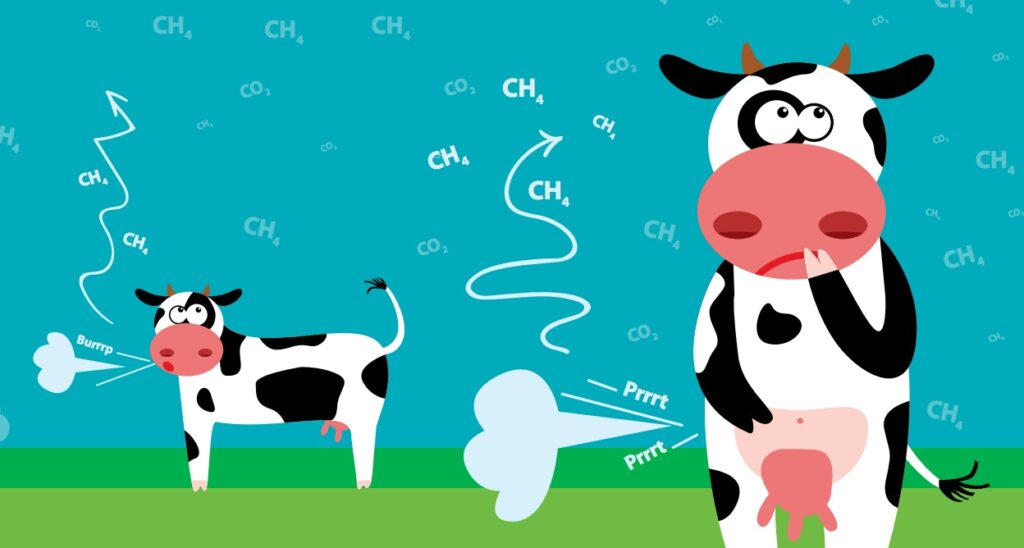It’s a known fact that cattle release large amounts of methane gas into the atmosphere. Research shows that a single cow can produce up to 120 kilograms of methane per day. This translates to approximately 104 billion kilograms of methane released annually by cattle worldwide. Methane, as a greenhouse gas, traps heat in the atmosphere, contributing to global warming. This situation is prompting scientists to search for solutions to reduce these emissions.
Reducing Methane Emissions in Cattle Through Genetic Modifications and Microbiome Changes
Researchers from the University of California, Davis, and the Innovative Genomics Institute are focusing on genetic modifications and microbiome changes to explore ways to reduce methane emissions in cattle. Methane production occurs during the fermentation process in the stomachs of cattle. Researchers are aiming to alter this process to minimize methane production.
In experiments, cows fed with seaweed oil showed reduced methane production, while the energy-efficient bacterium duodenibacillus became more dominant. Scientists plan to modify the genetic structure of these bacteria to develop more effective new types of bacteria. They also aim to change the microbiomes of calves at an early age through probiotic treatments.
Innovative Bacterial Species to be Developed
If these methods are successful, they can be easily adopted by farmers and could increase the overall efficiency of cattle. A total fund of $30 million has been provided for this study, and the team will continue to work on this strategy for the next seven years. The first trial probiotics are expected to be released within two years. These developments are seen as an important step towards sustainability in the agricultural sector.

1 Comment
It’s fascinating to see how science is tackling the issue of methane emissions from cattle. The research into modifying the microbiomes of calves with probiotics and enhancing bacterial species to reduce methane production is a brilliant approach. This could revolutionize how we manage livestock and make a significant impact on our environmental footprint. I’m curious about the potential challenges in scaling these solutions and how quickly they can be adopted by farmers.